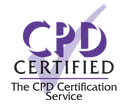
Learn the basics of
English (IELTS Readiness)
Designed to complement all aspects of English second language learning, this course will shape up your English communicative competence and help you become indistinguishable from native speakers. It will get you where you need to be, whether you are preparing for the IELTS tests, or simply brushing up on your English skills.
5,681
Graduates
All levels
Certified

Course details
MODULE 1
Diploma in English (IELTS Readiness)
MODULE 1
Diploma in English (IELTS Readiness)
1.How to Sound English
This lesson is designed to build on your speaking skills. You will learn how to pronounce some of the tricky sounds in English. You will also learn how to use your voice pitch (intonation) and emphasis (stress placement) to communicate more clearly.
2.Spelling Made Simple
This lesson will help you develop your spelling skills. You will learn the history of English spelling, spelling rules, and the best method for learning English spelling.
3.What Comes Up in Conversation
You will build further on your speaking skills in this lesson. You will learn the small but important speech habits of native speakers to optimise your fluency. You will also learn some of the phrases you can use to politely end a conversation as well as what contexts are appropriate to do so.
4.Unpacking Words: Things and Actions
Today you will learn about parts of speech. By the end of the lesson, you will be familiar with nouns, pronouns, verbs, and determiners. You will be equipped with a broad understanding of how words relate to each other.
5.Unpacking Words: Connecting Things and Actions
This lesson is the second parts of speech lesson. By the end of this lesson, you will be familiar with prepositions, conjunctions, adjectives, adverbs, and interjections. Your understanding of how words relate to one another will be developed even further.
6.Talking about Time
The content of this lesson is all about tenses. Every sentence references a specific time, whether it be the past, present, or future. This lesson will equip you with the knowledge to talk and write about a range of topics using the correct tense.
7.Let's Read!
This is your reading lesson. You will learn how to use reading strategies to your advantage. You will also practise answering some questions about a written text.
8.Let's Listen!
This is your listening lesson. You will learn some technical details about listening. You will also be given the opportunity to practice your listening skills by listening to some clips and answering questions about them.
MODULE 2
Intermediate in English (IELTS Readiness)
MODULE 2
Intermediate in English (IELTS Readiness)
1.How to Sound English
Today's class is designed to help to conduct yourself appropriately in English-speaking societies. You will learn some tips to sound polite. You will also learn about formality and telephone manner.
2.Make your Feelings Known
Learn how to express your emotions in English. You will also learn how to use English functionally for purposes such as giving advice, expressing obligation, and requesting permission.
3.The Building Blocks of Sentences
In the IELTS writing section, your ability to create different types of sentences, especially complex sentences, will be tested. In this lesson, you will learn how to build different types of sentences. This will help you to write more cohesively.
4.Sentence scrambling, let's change the order
This lesson will further your writing abilities even more by teaching you how to convert sentences between the active and passive form and when to use what form.
5.Good, better and best ways to describe things
Learn how you can describe things and actions by comparing them to one another and providing detailed descriptions. This information will prove useful for your writing abilities as well as your speaking skills.
6.Talking about Others: What did He Say?
In this lesson, you will learn how to convert text from direct speech into reported speech in different tenses. You will; also learn in which contexts to use the different versions of the sentence.
7.Let's Read!
Reading Lesson no 2. You will be given an opportunity to practise your reading strategies to prepare you for the IELTS reading section.
8.Let’s Listen!
In this lesson, you will be given the opportunity to practise your listening skills to prepare you for the IELTS listening section.
MODULE 3
Advanced in English (IELTS Readiness)
MODULE 3
Advanced in English (IELTS Readiness)
1.Lesson 1: Talking about Possibilities: What If...?
Conditionals Part 1. You will learn how to talk about hypothetical situations. This lesson explores the zero conditional and first conditional sentence structures.
2.Lesson 2: Talking About More Possibilities: What If...?
Conditionals Part 2. You will learn how to talk about even more hypothetical situations. This lesson explores the type two; conditional and type three; conditional sentence structures.
3.Lesson 3: Talking About Even More Possibilities: What If...?
Conditionals Part 3.. You'll learn how to construct some mixed conditional sentences. You'll also learn about the difference between tense and time, as well as recap irregular verbs.
4.Lesson 4: What Are The Native Speakers On About?
This lesson will teach you how to use idioms in the correct context. You will also learn how to use connected speech to sound more natural. Both of these skills will make you sound more natural and optimise your communication.
5.Lesson 5: Writing That Flows: How to Write Cohesively
By the end of this lesson, you will learn where to use which punctuation marks correctly to enhance your writing skills.
6.Lesson 6: Word Transformers
Learn how verbs can be converted into nouns. You will also learn about participles, gerunds, and infinitives. This will help you to improve your writing skills.
7.Lesson 7: Let's Read!/h6>
Reading lesson no 3. In this lesson, you will once again be presented with a text to read in different phases, giving you the opportunity to practise your reading strategies.
8.Let's Listen!
In this listening lesson, you will be given the opportunity to listen to some audio clips of people speaking English. You will answer questions about these clips, testing your ability to listen for meaning. The lesson will follow a similar structure to the IELTS listening section.
MODULE 4
Proficient in English (IELTS Readiness)
MODULE 4
Proficient in English (IELTS Readiness)
1.Talking about Yourself
This is an introduction to IELTS speaking. You will learn some tips for how to talk about yourself in preparation for the IELTS speaking test.
2.Talking about Topics
The topics in this lesson provides further training for the IELTS speaking test. You will learn how to prepare to talk about specific points of discussion that will be given to you by your examiner.
3.Talking about your opinions
In this lesson, you will learn how to express your opinions about topics in preparation for the IELTS speaking test.
4.Direct and reported speech continued
You will learn how to convert text from direct to reported speech when it comes to questions and imperatives. We will cover some other frequently asked questions about direct and reported speech.
5.Things verbs can do
Today we'll teach you the concepts of transitive verbs, intransitive verbs, and ditransitive verbs. This will help to optimise your speaking and writing skills.
6.Errors Even Native Speakers Make
This lesson will show you how to avoid some grammatical errors that even native speakers make. Some of these errors include comma splices, run-ons, and dangling participles.
7.Let's Read!
Reading lesson no 4. In this lesson, you will once again be presented with a text to read in different phases, giving you the opportunity to practise your reading strategies.
8.Let's Listen!
In your final listening lesson, you will once again be given the opportunity to listen to some audio clips of people speaking English. You will answer questions about these clips, testing your ability to listen for meaning. The lesson will follow a similar structure to the IELTS listening section.
